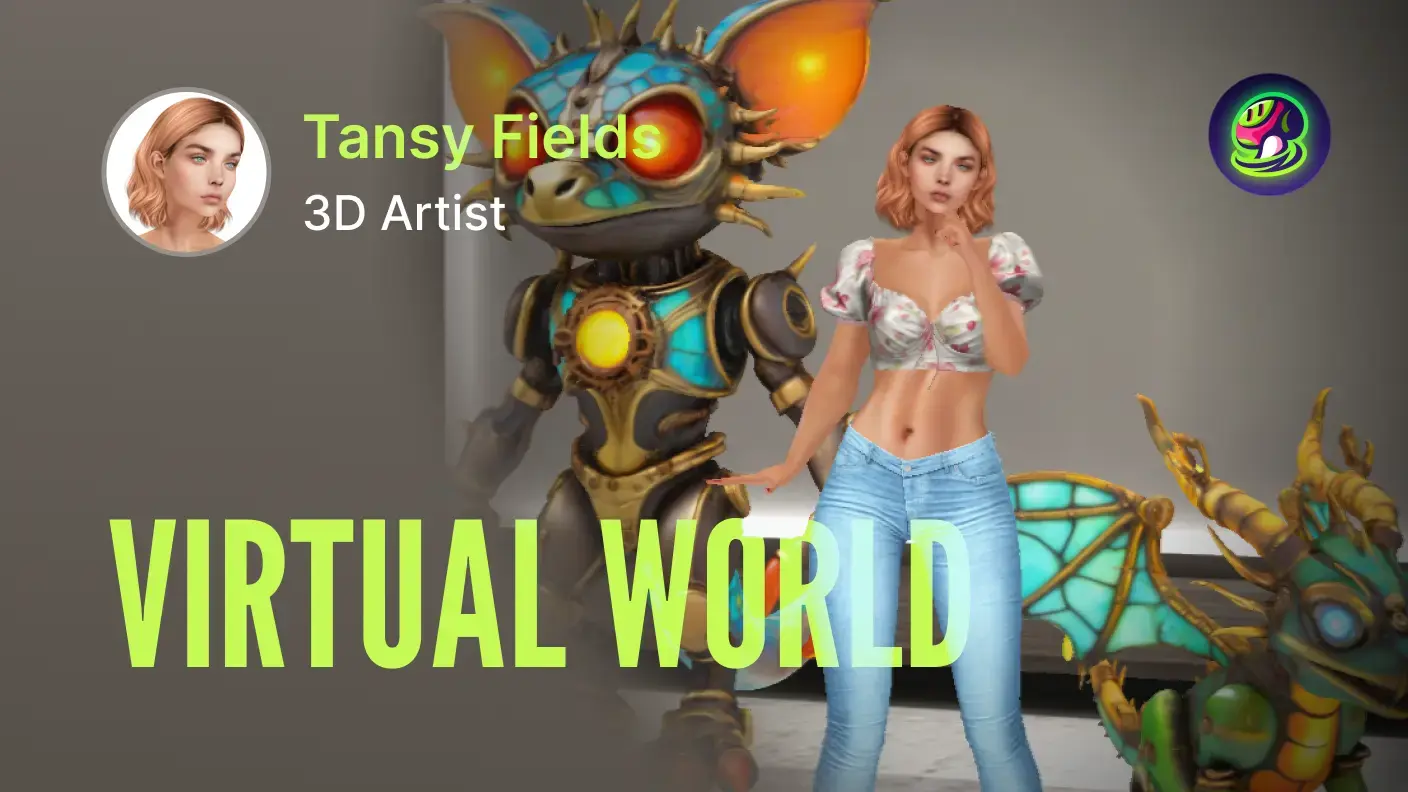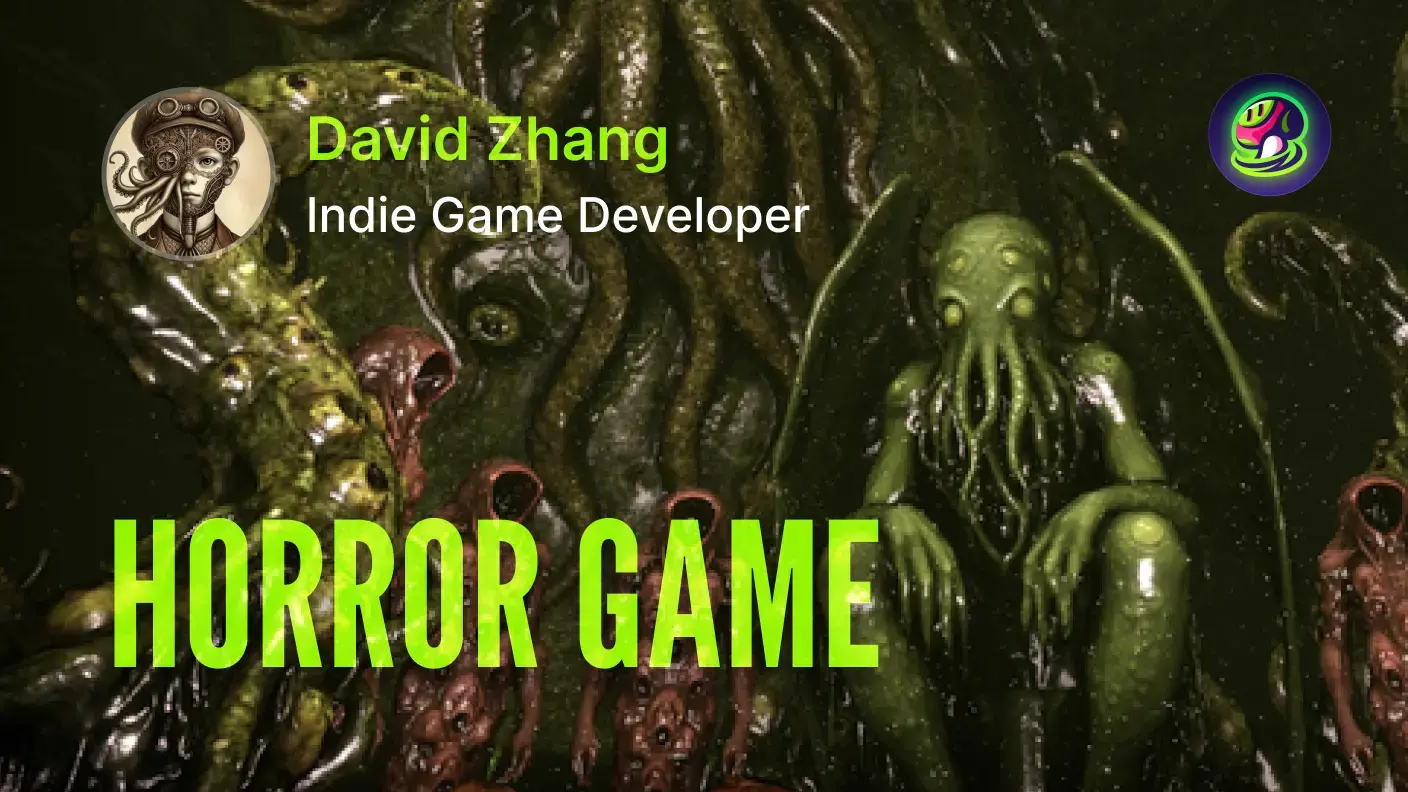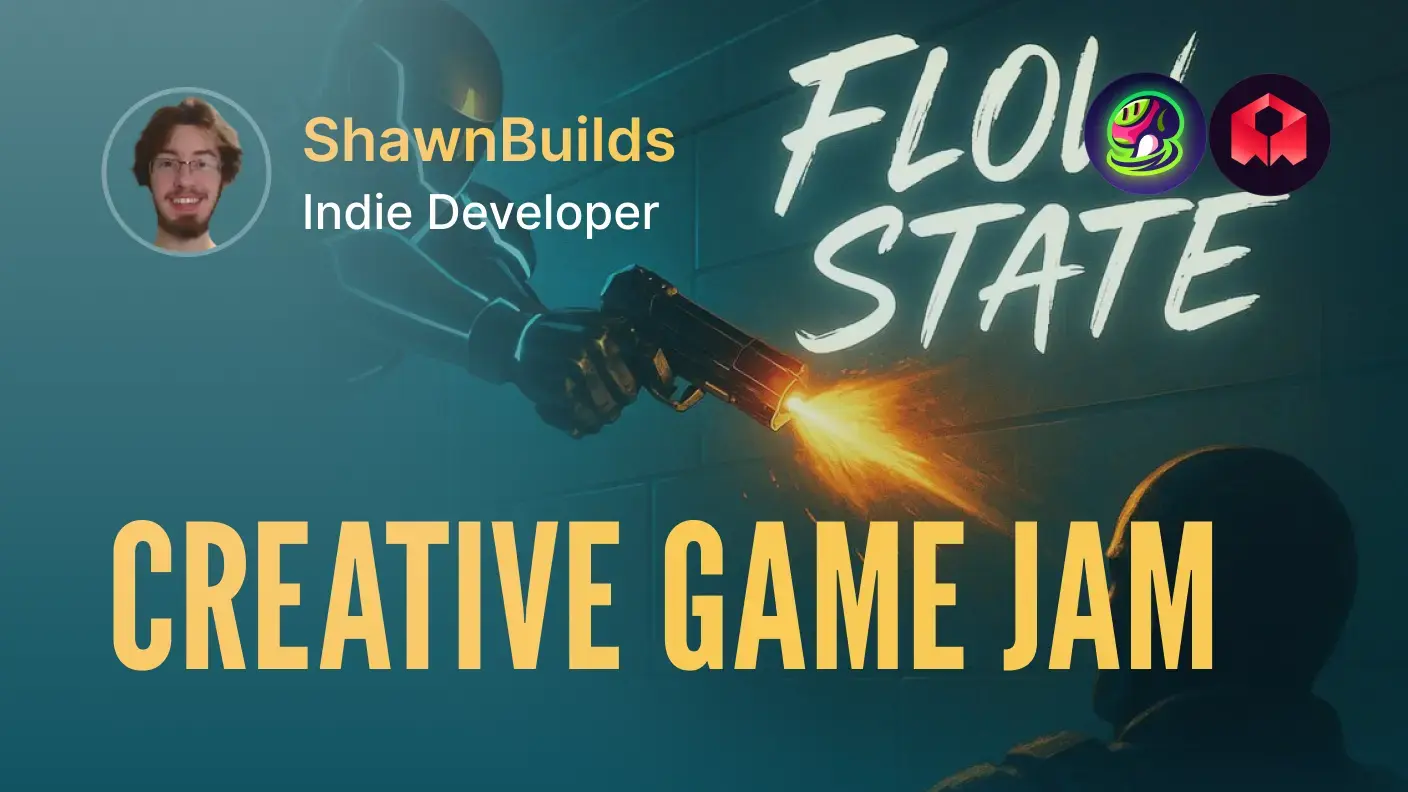Cristóbal Thompson is the solo developer behind Temporal Realms Studio, currently creating Treasures of the Cajón: Chronicles of the Maipo, an indie 3D atmospheric game inspired by the vivid landscapes and folklore of the Maipo Valley in Chile. With a background in architecture but no professional experience in 3D modeling, Cristóbal is shaping a poetic game world that reflects his fascination with time, memory, and place.
![]()
"Treasures of the Cajón: Chronicles of the Maipo began as an extension of my final architecture project. At the time, I was exploring how spatial design could reflect the passage of time in a tangible, poetic way. I wanted to create an environment where one could feel the hours of the day, the seasons, and even the years passing."
Cristóbal Thompson
Indie Game Developer, 3D Artist
Treasures of the Cajón combines farming and crafting elements within a 3D atmospheric world, but distinguishes itself from traditional farming simulators through its narrative-driven design. The game features mystical relics, environmental puzzles, and crypts inhabited by undead miners, offering players a deeper and more adventurous experience.
"The tone is closer to Shadow of the Colossus in mood and Stardew Valley in structure. I wanted to merge the emotional depth of time and loss with the satisfaction of gradual world restoration."
Cristóbal Thompson
Indie Game Developer, 3D Artist
There's no doubt that Treasures of the Cajón is shaping up to be an impressive and visually captivating project. However, as the sole developer behind Temporal Realms Studio, Cristóbal inevitably faces a range of challenges throughout the solo development process.
The Bottlenecks of Solo Game Development
Despite a clear narrative vision and architectural sensibility, executing that vision at scale was a major challenge for Cristóbal as a solo developer without formal 3D training.
"I rely heavily on external tools and AI to overcome my limitations in music and 3D modeling."
Cristóbal Thompson
Indie Game Developer, 3D Artist
Before using Meshy, he encountered several key bottlenecks:
- Lack of professional-level 3D modeling skills constrained creative flexibility
- Manual asset creation slowed down iteration and prototyping
- Limited hours and resources made traditional workflows impractical
- Building the game solo in spare time, without a large team or budget
Even with access to tools like SketchUp and Unreal Engine's real-time lighting and atmospheric effects, the core problem remained: filling those spaces with meaningful, custom-made 3D art was time-consuming and technically demanding.
Discovering Meshy AI: The Right Tool at the Right Time
Cristóbal came across Meshy online, and its ability to convert prompts into usable 3D models immediately caught his attention.
"The moment I generated my first miner zombie character based on a 2D idea and saw it come to life in 3D, I knew Meshy was a perfect solution. It unblocked my creativity and let me focus on game design instead of technical modeling hurdles."
Cristóbal Thompson
Indie Game Developer, 3D Artist
What started as an experiment quickly evolved into a core part of his creative pipeline. Meshy enabled him to rapidly prototype and refine highly specific assets from cursed miner zombies to corrupted spirit creatures.
All inspired by the narrative and visual language of his game. He also began using Meshy to flesh out the world's deeper layers: environmental props, mystical relics, ceremonial masks, and concept versions of architectural ruins buried beneath crypts.
![]()
"Meshy has become an essential part of my pipeline... Most recently, I've started using it to create concept versions of architectural ruins and totemic structures that appear deep inside the crypts."
Cristóbal Thompson
Indie Game Developer, 3D Artist
By removing technical bottlenecks and enabling fast visual iteration, Meshy gave Cristóbal the flexibility to explore scale, symbolism, and storytelling.
From Prompt to Unreal: A Streamlined Workflow
Cristóbal shared a typical workflow with us in video form. Here is the process of his indie game development.
Step 1: Generate models using Meshy's AI tools
Start by using Meshy's Text to 3D or Image to 3D feature to create assets like cursed zombie miners or ceremonial relics—directly from a simple prompt or sketch.
![]()
Step 2: Auto-rig the model in Meshy's workspace
Once the 3D model is generated, use Meshy's auto-rigging tool to prepare it for animation in just a few clicks and no manual rigging required.
![]()
Step 3: Preview and refine the animation
Test the animation right inside Meshy. Make quick adjustments or iterate on different versions before exporting.
![]()
Step 4: Export and import into Unreal Engine
![]()
Download the animated model and import it into Unreal Engine. Use animation retargeting to match the character rig to the project setup, and drop it directly into the game scene.
![]()
![]()
This streamlined workflow has not only saved Cristóbal time, it's also transformed how he approaches asset creation and storytelling in Unreal Engine.
"It's freed me from needing to be a 3D modeling expert to bring my vision to life. Now I can generate the models I need quickly and use them to enhance storytelling — especially when I want to convey symbolism through architecture, relics, or environments."
Cristóbal Thompson
Indie Game Developer, 3D Artist
Instead of getting stuck on technical tasks, Cristóbal now uses Meshy to stay in a creative flow generating visual prototypes, building symbolic 3D elements, and iterating faster than ever. From underground temple gates to sacred altars, Meshy allows him to block out key set pieces that anchor the world's lore and emotional tone.
"With Meshy, I can generate visual prototypes extremely fast and iterate on style or scale before committing to in-engine polish."
Cristóbal Thompson
Indie Game Developer, 3D Artist
Results: Expanded Bandwidth and Creative Liberation
Meshy doesn't just help Cristóbal save time, it also expands his imagination.
"Meshy helps me move faster, try out ideas that I would never have had time to model manually, and maintain a cohesive aesthetic throughout the world. It has essentially expanded my creative bandwidth."
Cristóbal Thompson
Indie Game Developer, 3D Artist
He's used Meshy to create countless assets, from relics to broken totems. In some cases, the generated assets themselves sparked new story ideas:
"Sometimes the generated models suggest story ideas or environmental puzzles I then build around."
Cristóbal Thompson
Indie Game Developer, 3D Artist
Early feedback on the game has been very positive. Friends and players appreciate its blend of serenity and mystery:
"One friend said it felt like Stardew Valley meets Shadow of the Colossus, which perfectly sums up the mood I'm aiming for. Someone else told me, 'I've never seen a farming game this atmospheric.' Another wrote, 'This is the first farming game where I feel like I'm uncovering something ancient and lost.' That meant a lot to me — it confirmed the story and world were resonating."
Cristóbal Thompson
Indie Game Developer, 3D Artist
Looking Ahead: Game Release and Continued Meshy Integration
![]()
Cristóbal is now working toward a vertical slice featuring all major mechanics: farming, crafting, puzzle-solving, and exploration. Once the Silver Mine and Cursed Temple areas are complete, he plans to release Treasures of the Cajón on PC.
"If I can share this game with players around the world and have even a small community who find emotional value in it, that would be a dream come true. I hope it invites people to slow down, explore, and reflect — just like I did while building it."
Cristóbal Thompson
Indie Game Developer, 3D Artist
And while Treasures of the Cajón is still in development, Cristóbal welcomes players and fellow creators to follow along, share feedback, and be part of the journey. Meshy will remain a critical part of his process:
"As I expand the world and introduce new relics, creatures, and temples, I'll keep relying on Meshy to visualize concepts quickly and stay creatively focused. It's a long-term companion in my solo development process."
Cristóbal Thompson
Indie Game Developer, 3D Artist
With tools like Meshy at his side, Cristóbal continues building a mystical, atmospheric world where time, memory, and magic come together.
Conclusion: Meshy is Here to Help
Cristóbal's journey with Treasures of the Cajón is a powerful reminder that creative vision doesn't have to be limited by technical constraints. With tools like Meshy, solo developers can bring ambitious worlds to life without a full modeling team or years of 3D training.
Follow the development journey on Cristóbal's YouTube channel here.
If you're ready to build worlds from imagination, Meshy is here to help!


